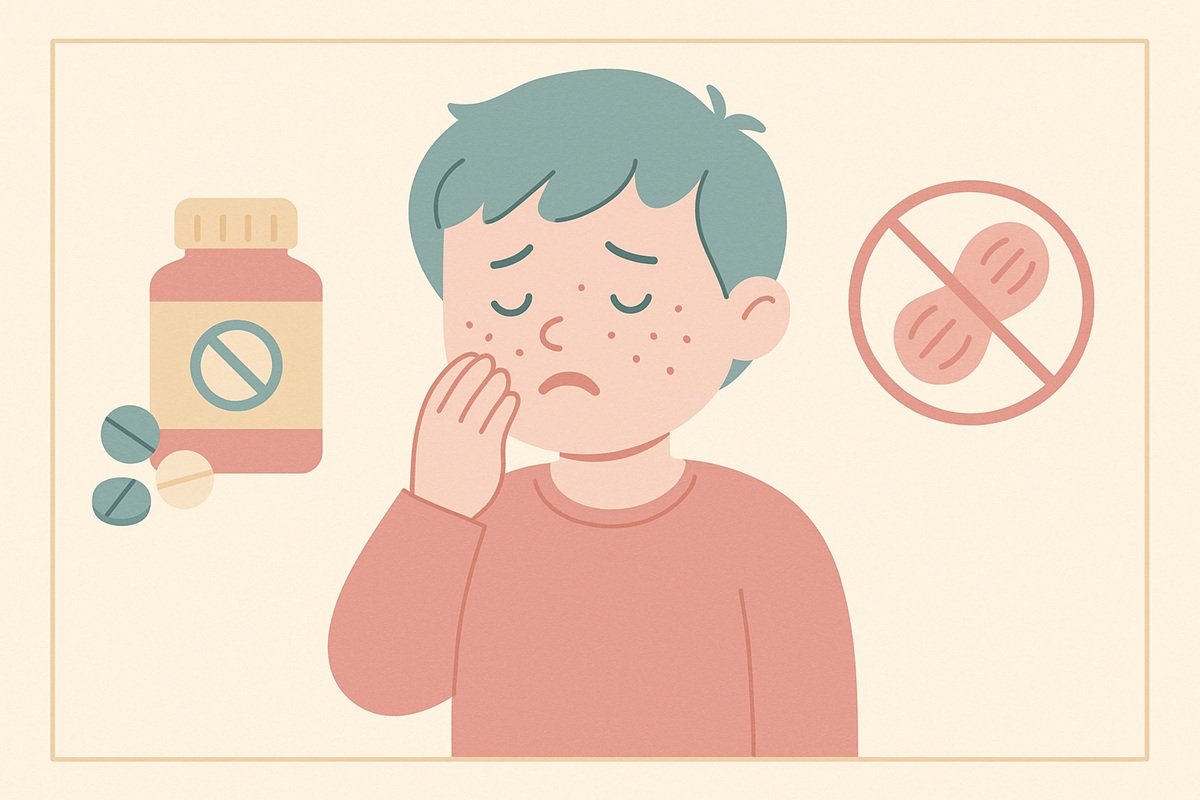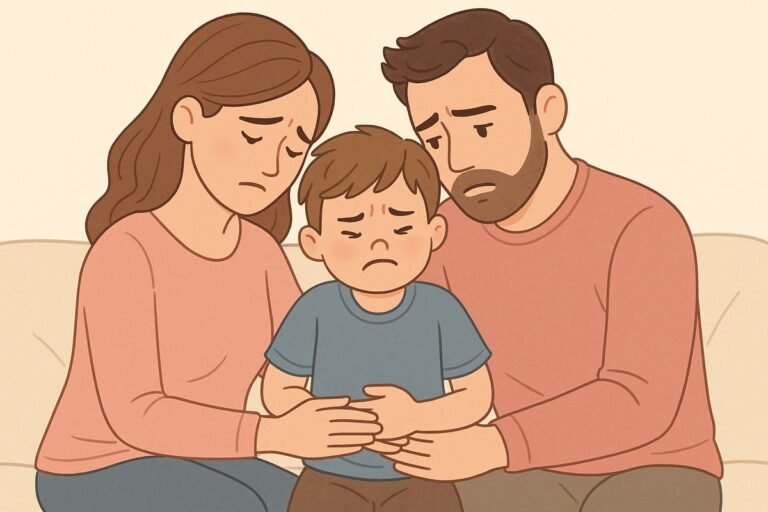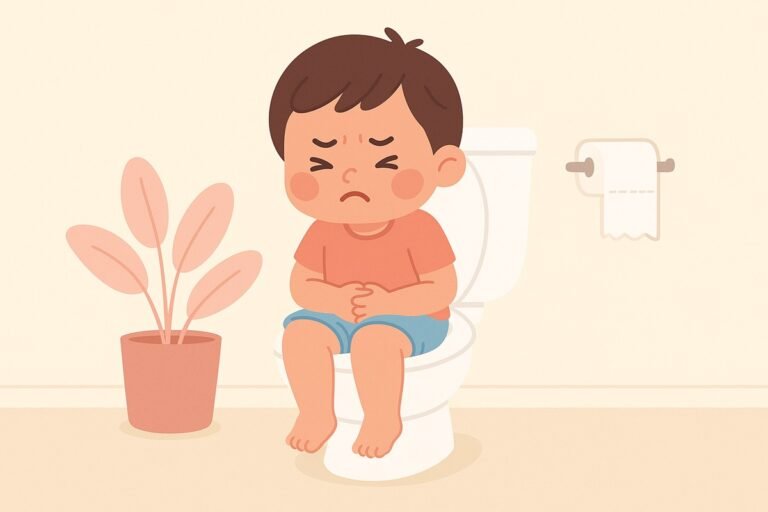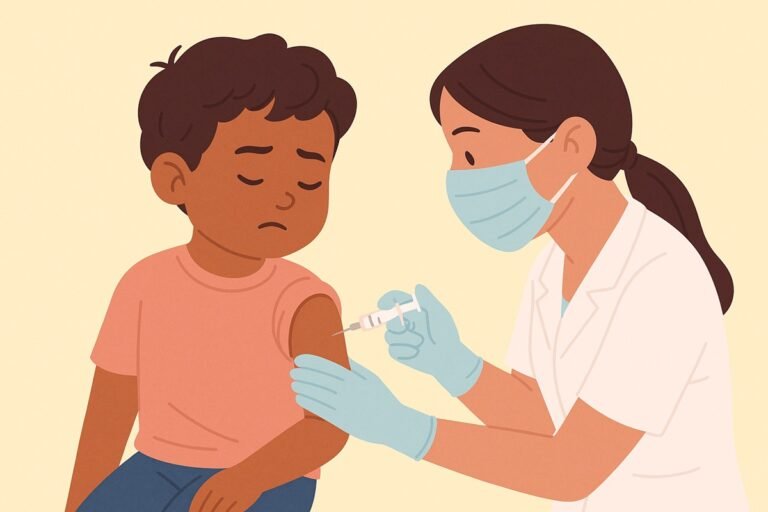Disclaimer: This article reflects the professional opinion of a licensed children’s physician and is intended solely for educational purposes. It does not substitute for professional medical consultation, diagnosis, or treatment. Any medication, diagnostic test, or medical management mentioned here should only be administered or initiated under the supervision of qualified healthcare personnel. Always consult your pediatrician or allergist for concerns regarding allergies in children.
Food and drug allergies are increasingly common in children and can range from mild to life-threatening. As a parent, understanding what food and drug allergies are, how they manifest, and what to do in case of an allergic reaction is critical.
This guide aims to give you a clear, medically sound understanding of food and drug allergies in children of different ages, their risks, and the best ways to manage and prevent them in your child.
Table of Contents
What Are Food and Drug Allergies?
An allergy is the immune system’s exaggerated response to a substance that is typically harmless.
When it comes to food allergies, the body reacts to certain proteins in foods as if they were harmful invaders. According to data cited by Mayo Clinic, as much as 8% of children suffer from food allergies.
With drug allergies, the body mounts an immune reaction to specific medications. The National Institutes of Health (NIH) report that a reaction to at least one type of drug has been reported in between 2.9% and 16.8% of pediatric patients.
Common food allergens in children include:
- Cow’s milk
- Eggs
- Peanuts
- Tree nuts (such as almonds and walnuts)
- Soy
- Wheat
- Fish
- Shellfish
Related: 20 Tips for Parents of Picky Eaters
Common drug allergens in children include:
- Penicillin and related antibiotics
- Sulfa drugs
- Non-steroidal anti-inflammatory drugs (NSAIDs) like ibuprofen
- Anticonvulsants
- Chemotherapy agents
While the lists above mention the most common food and drug allergens in children, they are by no means comprehensive. Children might be allergic to a wide range of other foods and drugs.
Risks and Complications of Food and Drug Allergies
Allergic reactions can be unpredictable and vary in severity from one episode to another.
Risks and complications of allergic reactions to foods and drugs in children may include:
- Mild Reactions: Skin rashes, itching, nasal congestion, and/or mild gastrointestinal upset.
- Moderate Reactions: Widespread hives, vomiting, abdominal cramps, and/or coughing.
- Severe Reactions (Anaphylaxis): Swelling of the throat and tongue, difficulty breathing, drop in blood pressure, and/or loss of consciousness
Anaphylaxis, which describes the most severe reactions to food and drug allergies, is a medical emergency and can be fatal if not treated promptly. Children with known food or drug allergies should always have access to emergency medication such as epinephrine (EpiPen).
How to Recognize Food and Drug Allergies in Your Child
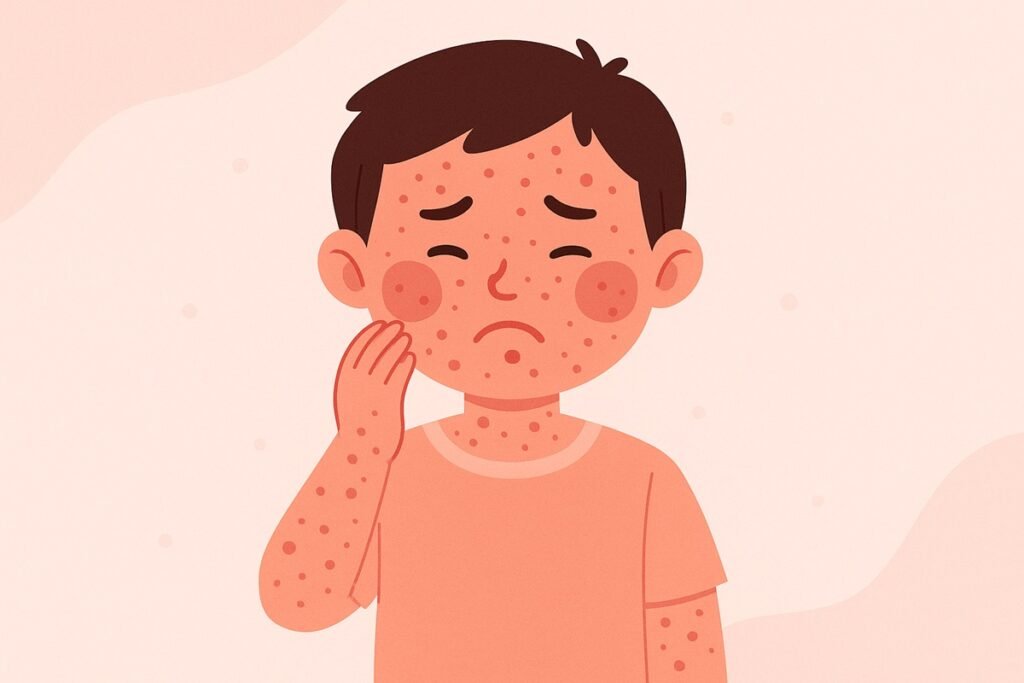
Signs and symptoms of food and drug allergies may include:
- Skin: Hives, itching, redness, and/or eczema flare-ups.
- Gastrointestinal: Vomiting, diarrhea, and/or abdominal pain.
- Respiratory: Sneezing, wheezing, nasal congestion, and/or shortness of breath.
- Cardiovascular: Dizziness, fainting, and/or low blood pressure.
- Behavioral: Irritability and/or lethargy in infants.
Reactions typically occur within a few minutes to two hours after exposure to foods and drugs to which the child is allergic. Delayed allergic responses can also occur, especially in food-related allergies.
How to Avoid Food and Drug Allergies
There are two main ways of preventing food and drug allergies in your child: primary and secondary prevention.
Primary Prevention:
- Breastfeeding: Exclusive breastfeeding for the first 4-6 months may lower the risk of developing allergies.
- Introduction of Allergenic Foods: According to recent guidelines, early introduction (around 4-6 months) of allergenic foods like peanut and egg under a pediatrician’s supervision may help prevent allergies in high-risk infants.
Secondary Prevention:
- Label Reading: Always read ingredient labels carefully, even on products you’ve used before.
- Cross-Contamination Awareness: Be cautious when preparing food or eating out to avoid mixing in foods to which your child is allergic.
- Inform Caregivers and Teachers: Ensure that those who take care of your child know of their allergens and how to respond in an emergency.
- Medic Alert Bracelets: Wearing a medic alert bracelet is helpful for older children to communicate their allergies in emergencies.
When to Seek Urgent Medical Attention
Immediate medical attention is required if your child shows any signs of a severe allergic reaction, such as:
- Swelling of lips, tongue, or throat
- Difficulty breathing or wheezing
- Pale or blue coloring
- Rapid heartbeat
- Confusion or fainting
What to Do:
- Administer epinephrine immediately (if available and prescribed).
- Call emergency services (911 or your local emergency number).
- Lay the child flat and raise their legs if possible.
- Do not give food, drink, or oral medications during anaphylaxis.
Medical Tests for Food and Drug Allergies
A formal diagnosis is essential for the appropriate management of allergies. Your pediatrician may refer your child to an allergist for the following tests:
- Skin Prick Test: Tiny amounts of suspected allergens are placed on the skin of the child, and reactions are observed.
- Specific IgE Blood Test: This blood test measures antibodies in response to specific allergens.
- Oral Food Challenge: This test is conducted under strict medical supervision to confirm diagnosis of suspected allergens.
- Elimination Diet: This comprises the temporary removal of suspected allergens followed by gradual reintroduction.
For drug allergies, graded drug challenges and drug desensitization protocols may be conducted in a hospital setting.
Medical Management and Interventions
For parents whose children have allergies to foods and drugs, it is important to understand how to manage both emergency situations and provide long-term management.
Emergency Medications:
- Epinephrine Auto-Injector (EpiPen): First-line treatment for anaphylaxis.
- Antihistamines: For mild allergic reactions like hives or itching.
- Corticosteroids: Used to reduce inflammation in moderate to severe reactions.
Long-term Management:
- Allergen Avoidance: Most effective strategy.
- Immunotherapy (Desensitization): Experimental for food allergies but standard for some environmental allergies. For drugs, desensitization may allow temporary tolerance under supervision.
- Nutritional Support: For children with multiple food allergies, a dietitian should be involved to ensure balanced nutrition.
School and Community Involvement:
- Schools should have a clear allergy action plan.
- Staff should be educated on how to use epinephrine and recognize allergic reactions.
Final Thoughts
Food and drug allergies can be stressful and sometimes frightening, but with proper knowledge, preparation, and medical support, children with allergies can live healthy, active lives. As a parent, you are your child’s first advocate – by staying informed, vigilant, and proactive, you empower your child to stay safe and thrive.
Always consult your healthcare provider when in doubt. Never ignore symptoms or attempt treatment without professional guidance.
What is your experience with food and drug allergies? Is your child allergic to anything? How have you been managing this? Share your experiences in the comments. Other parents who are going through this are definitely eager to hear from and connect with parents who are successfully navigating this challenging terrain.

